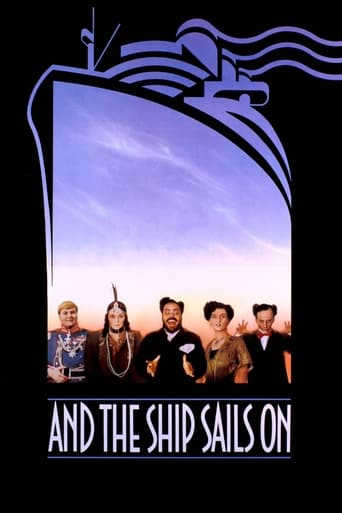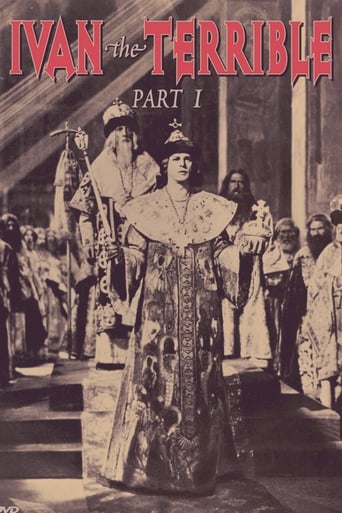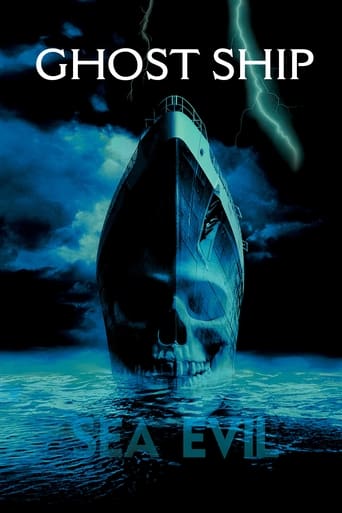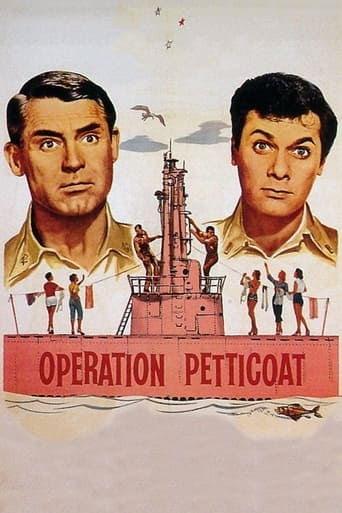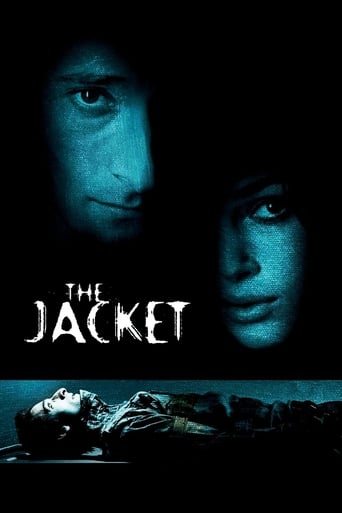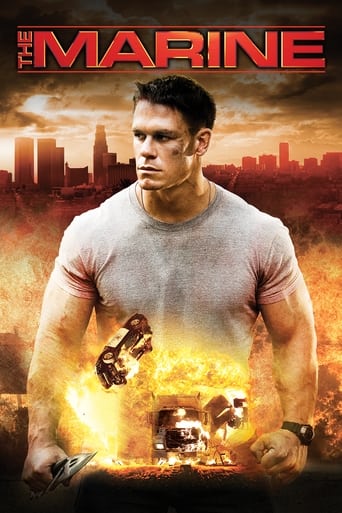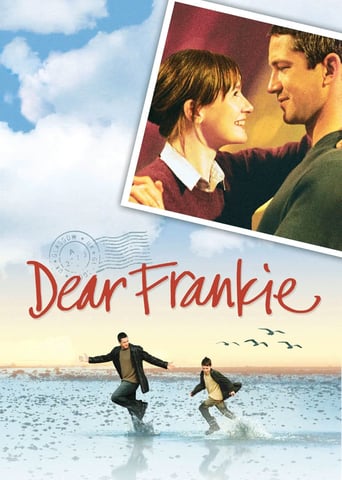And the Ship Sails On (1983)
In 1914, a cruise ship sets sail from Naples to spread the ashes of beloved opera singer Edmea Tetua near Erimo, the isle of her birth. During the voyage, the eclectic array of passengers discovers a group of Serbian refugees aboard the vessel. Peace and camaraderie abound until the ship is descended upon by an Austrian flagship. The Serbians are forced to board it, but naturally they resist, igniting a skirmish that ends in destruction.
Watch Trailer
Free Trial Channels
Cast


Similar titles
Reviews
Such a frustrating disappointment
The performances transcend the film's tropes, grounding it in characters that feel more complete than this subgenre often produces.
Not sure how, but this is easily one of the best movies all summer. Multiple levels of funny, never takes itself seriously, super colorful, and creative.
Exactly the movie you think it is, but not the movie you want it to be.
At 1st view, I thought our sound didn't work on the DVD player, then so typical of Fellini, knowing this, he slowly adds little sound bites, then there is music and singing, then there is voice. Everyone on the ship is requested to be there by the dead opera singer's will to witness her ashes being blown at sea at her desired place 3 days sailing out. There is no point to this movie, a bunch of hodge podge scenes, each with their own uniqueness. But the sum doesn't add up, it is just vignettes (almost) on this crazy ship. It starts off in the dining room like a choreographed ballet. Everything is orderly, then as the days go on it is not so. Many scenes are hilarious, like the sing-off to the boiler room sweaty guys and the sweaty guys are really getting into it! Even to the point of singing and swaying to the music as if they would know opera! The concert of the glassware in the kitchen as the cooks are frantically preparing the meals was by far my favorite scene. Then there were refugees on the ship. Was Fellini privy to future conflict to happen in 10 years future? And a rhino in the ship's hold then needs a hose-down? Dis-jointed but yet like life, everyone has a story. The movie ends but you know everyone else's story doesn't. Great movie!
E LA NAVE certainly deserves a place of honor is the master's creationas the most eerie, genuinely Goyesque and intriguing rune, a surrealist and twisted vision using profuse intuitions and ambiguous understatements. That's why few movies can match this one. It does not require maybe that much expertise to acknowledge what a thoughtful movie this is, and, beyond being thoughtful, from what depths of genuine intuition it does proceed.E LA NAVE is one of the buff's examsthe master has long ago already passed his exams, and now the buff faces this onewhat will he/ or she, fair reader, make of this bizarre, strikingly funny, surrealist _capriccio ,once its very visionary nature is acknowledged and brought to full admission? Me, I'm a man aged in such Fellinianisms. I recognize quickly the artifacts of the surrealism contrived and forced; I can testify for the authenticity of the Fellinian creative intuition in E LA NAVE ;it's a fever of the FellinibeyondFellini, at a stage without sentimental-isms and heartache; a coherent world-view, a satire and a bitter comedy. Maybe, just maybe, a surrealist cosmogony as well.Already in Fellini's time, cinema was long ago validated as art. There was no word of acknowledging or validating it as art; Fellini already comes after some giants. Nowadays as in Fellini's own time, some people, less discerning, seem eager to recognize DAUGHTER OF HORROR (which I comment on this site) as genuine surrealismbut to a lesser degree E LA NAVE ; now that's awkward. Because here Fellini the wizard went beyond ambitions and achieved this partGoyesque part satirical take on a world long ago abolished and drowned; and some of those who know at least some of the important Italian cinema of the '70s and '80s (things like the Ottaviani brothers, the Avatti, and the master Fellini himself) will not fail to recognize rather promptly this blend and also this special flavor of temerity and decadence.Now of course most do not even need this; yet I would insist of taking by the hand the unconvinced few and dip them a little in thiswhat shall we call itin this primordial soup, in this _cosmographic sketch. I bet you do not know many other musical sequences in the cinema as good as the glasses session in the ship's kitchen. They are good, are they not? You had some fun. Or the countless jokes issued by the master's inventivenessbeginning of course with the silent scene right at the beginning, before the color shift.The final Fellini was somehow the mellower; understandable. Do not be fooled by the down-talkers. They ignore the trade. Maybe those used with the first Fellinior with the first Fellinis, should one sayfailed to adapt and change. But for me, after the '60s Fellini only got betterif such a thing were possible. In E LA NAVE there's nothing phony or fake; on the contrary, it's creepily genuine.Enjoy the style, the movement, the atmosphere, the approach! I have mentioned the scene of the glass concerto; there, the cinematographic phrase itself dances. What Fellini delivers here are not a few gimmicks and tricks but an original take. Here at least some schmucks who pretend to direct movies could learn at least some of the externals.
Conventional knowledge has it that the only film of Fellini's worth a damn after 8½ is Amarcord. Earlier this afternoon, I would have gladly agreed, but tonight I have discovered that this is a fallacy. I present to you And the Ship Sails On..., a film that is not only to be ranked alongside Fellini's permanent, almost unquestionable masterpieces, La Strada, Nights of Cabiria, La Dolce Vita, 8½, and Amarcord, but one to be ranked among the best works in cinema. Perhaps this is the most underrated film ever made by a true master, the man who literally was the first filmmaker to be called "auteur" by Andre Bazin in an article about Nights of Cabiria.I would describe this film as a close relative of Amarcord's. The style of characterization is identical - instead of of a close character study, the sort of characterization most film lovers tend to like, the characters in these two films are drawn more broadly, with more attention paid to unique physical features and behavioral quirks. This is all in an attempt to have the audience identify the characters - or, more precisely, caricatures (before he made movies, Fellini worked as a caricaturist on the streets of Rome) - in a stereotypical way. Take Titta's parents from Amarcord - they're whom we might draw if we were asked to draw bickering parents. Take the Duke from And the Ship Sails On - could you imagine a teenage, Teutonic duke any other way than Fellini presents him? You could also take it the other way - when you see this odd fellow on screen, do you have any doubt that he is Germanic royalty? The visual style is also similar to Amarcord's - that one was painted with cartoonish colors. And the Ship Sails On is also very colorful, but the palette is more specified here - a beautiful canvas of blue-grays and whites.The narrative styles of the two films differ quite a bit, but still are similar. Amarcord taps the vein of nostalgia - perhaps the most untapped of human emotions - for its affect. And the Ship Sails On seems to be going for absurdist, surreal satire. It's a genre that is more or less dead in the world of cinema, which is why, I assume, this film was such a bomb in 1984 and is relatively unknown today. Why satirize the aristocracy of the WWI era anyhow? That's a good question, but one that is not difficult to answer. I don't believe that Fellini meant the film as any kind of biting satire. It's all done in fun, although the juxtaposition of the rich with the Serbian refugees, whom the ship's crew finds afloat on sinking rafts one night, does ring with a certain painful and ironic truth about how the rich see the poor. Still, even though we might scoff at the way the aristocrats try to trace the roots of Serbian dances back to ancient times, the scene immediately following it, where those aristocrats go down on the deck to dance with the Serbians, is very entertaining and beautiful. The music in that scene, in fact, the music throughout the entire film, made me want to clap and dance. The actors move rhythmically as they progress through the film. I also have to add that Fellini never made a funnier film, at least of the ones I've seen, which are a majority of them (Toby Dammit of the omnibus film Spirits of the Dead comes very close).Most of this film's greatness lies in individual scenes, and thus, as you might guess, the sum is not exactly equal to the parts - at least as far as I saw, there's no real point - the substance is thin. But when style is this beautiful, I say screw substance. Each individual scene ranks among the best ever put to film - the wine glass concert, the scene where sunlight brightens one half of the ship and moonlight the other, the boiler room scene where the great opera singers compete vocally in order to impress the sailors below, the interview with the duke, and the opera singer's funeral. Each scene is so exquisitely created by Fellini and every other artist involved that it is entirely forgiveable if the audience remembers those individual images rather than an overall effect. For me, the combination did have an overall effect: I was so awestruck that I was weeping, though there was nothing onscreen to weep at. 10/10.
Fellini accomplishes more in the first 15 minutes than many directors accomplish in a film. His ending (as always) is equally superb. Don't think I'm suggesting the middle is poor! Watch this instead of Titanic.

